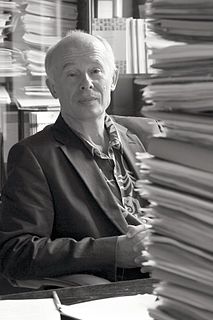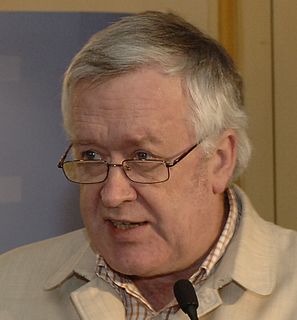A Quote by Hans Joachim Schellnhuber
The bottom billion people don't contribute at all to climate change - maybe 1 percent of emissions, they could double or triple their emissions and the climate would not be destabilised.
Related Quotes
Sensible policies on global warming should weight the costs of slowing climate change against the benefits of slower climate change. Ironically, recent policy initiatives, such as the Kyoto Protocol of 1997, have been introduced without any attempt to link the emissions controls with the benefits of the lower emissions.
CO2 is a minor player in the total system, and human CO2 emissions are insignificant compared to total natural greenhouse gas emissions. Therefore, lowering human CO2 emissions will have no measurable effect on climate, and continued CO2 emissions will have little or no effect on future temperature....While controlling CO2 emissions from burning fossil fuels may have some beneficial effects on air quality, it will have no measurable effect on climate, but great detrimental effects on the economy and our standard of living.
I am worried about climate change. In one respect, I may be more worried than other people. I am worried because I have very little confidence that we know what is causing it....One of my fears is that we could reduce carbon emissions by some drastic amount, only to discover that-oops-it turns out that climate change is being caused by something else.
For me the two biggest issues are climate change and animal welfare/animal agriculture. And oddly enough animal agriculture is such a contributor to climate change. According to the United Nations, 25% of climate change comes from animal agriculture, so every car, bus, boat, truck, airplane combined has less CO2 and methane emissions than animal agriculture.
We can no longer completely avoid anthropogenic climate change. At best, limiting the temperature rise to two degrees is just about possible, according to optimistic estimates. That's why we should spend more time talking about adjusting to the inevitable and not about reducing CO2 emissions. We have to take away people's fear of climate change.
Any objective look at what science has to say about climate change ought to be sufficient to persuade reasonable people that the climate is changing and that humans are responsible for a substantial part of that - and that these changes are doing harm and will continue to do more harm unless we start to reduce our emissions.
For 25 years countless people have come to the U.N. climate conferences begging our world leaders to stop emissions and clearly that has not worked as emissions are continuing to rise. So I will not beg the world leaders to care for our future. I will instead let them know change is coming whether they like it or not.

































